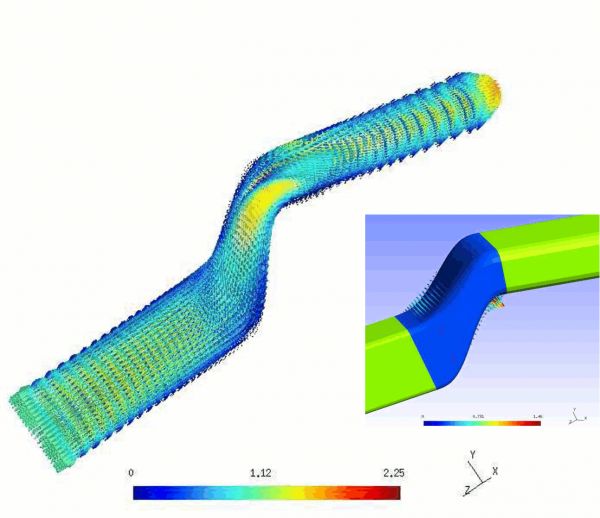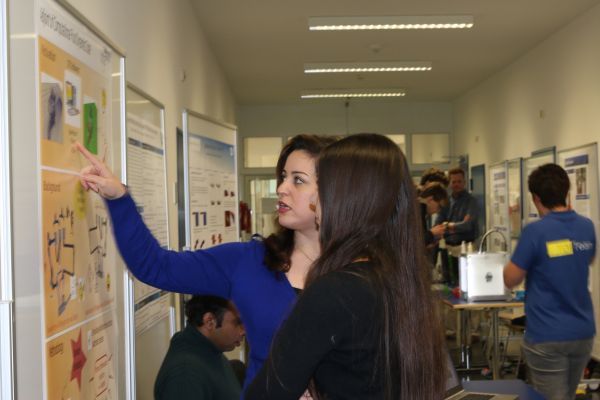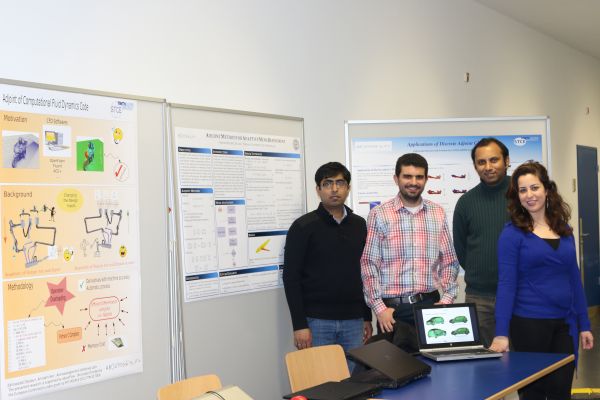Research Fellows
Zahrasadat Dastouri
Early Stage Researcher at RWTH

I was born in Isfahan, a beautiful city in the middle part of Iran. After finishing my high school in physics and mathematics, I started my B.Sc in Civil Engineering from Isfahan University of Technology in Isfahan. Following this, I moved to Tehran to pursue my graduation studies and in February 2009, I was awarded my Masters degree in Hydraulic Engineering from K.N. Toosi University of Technology in Tehran. During my study, beside my graduation courses, I have been involved with a number of opportunities to work in the area of CFD code development. Since I was interested to pursue my education in an international university outside Iran, I joined the Postmasters program in Mathematics department of Eindhoven University of Technology (TU/e) in October 2010. This program presented me with the opportunity of combining my engineering skills with mathematical modeling, simulation and numerical analysis. After finishing my Postmasters in January 2013, I joined RWTH Aachen university in February as an ESR under the aboutFlow project, which shall lead to a PhD.
My main goals through the PhD program in aboutFlow project is to apply and develop my computational knowledge and skills in the field of Adjoint-based methods, CFD optimization, and high-performance computing using algorithmic differentiation schemes. I found aboutFlow ITN project a great opportunity in which I can develop my knowledge in algorithmic differentiation via scientific workshops, international conferences etc. in a great research environment in RWTH Aachen university and moreover I can meet and co-operate with people, companies and industries globally working in this field.
Currently at STCE (Software and Tools for Computational Engineering) institute in RWTH Aachen university, I am working on discrete adjoint version of ACE+ by applying algorithmic differentiation tool using operator overloading tool, dco/fortran. ACE+ is a general CFD and multi-physics solver developed by the ESI Group for a broad range of disciplines.
The objectives of my project is to enable large-scale sensitivity analysis and (robust) non-linear optimization through discrete adjoint methods based on ACE+ and to facilitate extension of ACE+ to unsteady flows and multi-physics applications by using a hybrid (source transformation / overloading) discrete adjoint approach.
Contribute to Work Packages
 The optimization problem is subjected to a large number of design variables that makes calculating the sensitivity derivatives by finite difference approach a costly procedure. Algorithmic differentiation is a well known method to differentiate the computer program with the aim of obtaining the sensitivity of the objective with respect to design variables
The optimization problem is subjected to a large number of design variables that makes calculating the sensitivity derivatives by finite difference approach a costly procedure. Algorithmic differentiation is a well known method to differentiate the computer program with the aim of obtaining the sensitivity of the objective with respect to design variables
In my project I apply the automatic differentiating tool by operator overloading on a Navier-Stokes flow solver. The goal is to produce a discrete tangent-linear and adoint version of the CFD code using the operator overloading tool. This tool called dco/fortran is a development at the institute Software and Tools for Computational Engineering implementing Algorithmic Differentiation (AD) by overloading in Fortran (Naumann2011). Moreover, we address typical implementation issues and complexities in the differentiating procedure by AD tool in the CFD code.

Numerical experiments indicate that the dco/fortran adjoint approach can be used to estimate the sensitivity, showing generally good agreement with other AD tool. In terms of robustness, ease of development and ability to handle arbitrary functionals, dco/fortran is more effecient and its application can be extended to more complex CFD code.In this research we extend the development and application of dco/fortran to generate the sensitivity algorithm for the industrial-commercial CFD solver, ACE+ developed by ESI group and relevant industrial test cases.
[1] U. Naumann. The Art of Differentiating Computer Programs. SIAM, 2011

My public engagement was how to present the concept of my Ph.D. research project in a public event that is for different groups of people in a way that is understandable for the audience attending in this event. The purpose of this event is that the audience get familiar with research project in university and industry in the region I work . This activity was conducted with Arindam Sen, Razibul Islam and Nikolaos Magoulas in Aachen Science Tunnel of RWTH Aachen university.
I showed the basic idea of my work that is adjoint of a CFD code. This examples was constructed in a way that can be understandable for different ages and groups. I presented it using simple graphics and simple words. Then proceed to show that how we model the idea using computer program and how we reach the goal to make the computer program automatic, fast and efficient in terms of memory consumption of the computers.
This event helped me to obtain a good outreach experience for my project. It also helped with my presentation and communications skills. Moreover, it was a way to make science graspable by providing education and fun through these public engagements.



